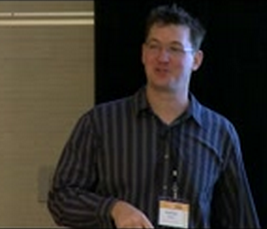Eggs.Variant - Part II (the constexpr experience)--K-ballo
A link to make type-safe unions:
Eggs.Variant - Part II (the constexpr experience)
by K-ballo
From the article:
Ruminations on the development of Eggs.Variant, a C++11/14 generic, type-safe, discriminated union. Part I explored a straightforward implementation based on untyped raw storage appropriate to hold any of the variant members. It was noted, however, that such an implementation would never be constexpr-aware. It's time to throw it away and start from scratch in order to properly support constexpr...

 While we wait for CppCon 2015 in September, we’re featuring videos of some of the 100+ talks from CppCon 2014. Here is today’s feature:
While we wait for CppCon 2015 in September, we’re featuring videos of some of the 100+ talks from CppCon 2014. Here is today’s feature:
 While we wait for CppCon 2015 in September, we’re featuring videos of some of the 100+ talks from CppCon 2014. Here is today’s feature:
While we wait for CppCon 2015 in September, we’re featuring videos of some of the 100+ talks from CppCon 2014. Here is today’s feature: While we wait for CppCon 2015 in September, we’re featuring videos of some of the 100+ talks from CppCon 2014. Here is today’s feature:
While we wait for CppCon 2015 in September, we’re featuring videos of some of the 100+ talks from CppCon 2014. Here is today’s feature: